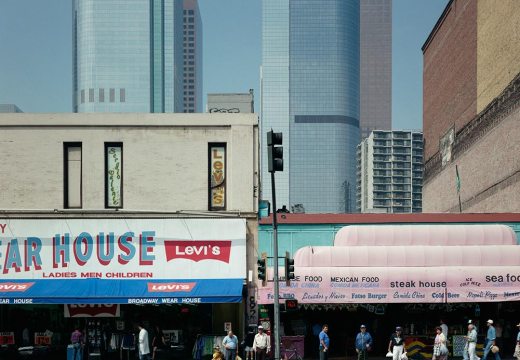Walid Raad was 16 years old when he took a boat to Cyprus to escape the violence of his own city. Behind him Beirut suffered under dogged fighting. It was 1983 and Raad’s departure had re-routed his destiny. Thirty-two years later the émigré is firmly embedded in New York City’s intellectual elite. As Associate Professor of Art at The Cooper Union he helps shape a generation of artists. MoMA is giving him a solo show in October.
‘The Atlas Group (1989 –2004)’ and ‘Scratching on Things I could Disavow: a History of Art in the Arab World’, which began in 2007 and is ongoing, are Raad’s two career-defining projects. The first is about the history of war in Lebanon, and the second about the evolving Arab art boom. Segments from both will make up the MoMA show, as they do ‘Postface’, the current exhibition of his work at Sfeir-Semler Gallery, Hamburg. Elements from Raad’s two long-term projects have been exhibited together since 2010 when London’s Whitechapel Gallery first paired them to form a sort of survey.

We are fair people. We never speak well of one another (2014), Walid Raad, from ‘The Atlas Group (1989–2004)’. Courtesy the artist and Sfeir-Semler Gallery, Beirut / Hamburg
The divided layout of Sfeir-Semler, with a ground-floor gallery followed by another space upstairs across the courtyard, perfectly suits showing two distinct sets of work, and the contrasting visual styles of Raad’s two projects are sharply felt. But so too is the conceptual continuity between them, brought out especially by the artist’s walk-through, given on the opening night. Hearing Raad indicate through his tone of voice the factual inconsistencies and playful touches contained in his work, opened up the experience of the images, objects and videos on the walls. Without this it is easy to miss his humour and feel vaguely confused; no matter though, this is part of the point.

Hostage: The Bachar Polaroids (2011), Walid Raad, from ‘The Atlas Group (1989–2004)’. Courtesy the artist and Sfeir-Semler Gallery, Beirut / Hamburg
In the downstairs room are sequences of photographs from ‘The Atlas Group (1989–2004)’, made by Raad’s semi-fictional collective of the same name. The photographs depict crime scenes, weapons, and hostages. It is less what they show, though, and more what they are that seems to matter: that is, documents that record fragments of what happened during the Lebanese Civil War. They look real enough but coherent meaning feels out of reach, like inconclusive fragments lacking a comprehensive narrative.
Upstairs the aesthetic becomes notably more refined as reconstructions of gallery walls display replicas of Islamic art objects from the Paris Louvre, relabelled, re-hung, and whimsically ‘re-united with their shadows’. An abstract video moves between patterns, blurs and stripes of rich intense colour – Raad’s chosen form for the imaginary ‘skin-shedding’ some artworks may do in transit from Paris to their new home at the Louvre Abu Dhabi. Inevitably each of the ‘documents’ from ‘Scratching on Things I Could Disavow’ take on the appearance of the work’s sophisticated subjects; art, exhibition, the museum – just as those from ‘The Atlas Group (1989–2004)’ imitate the harsh realism of weapons snap shots and the documentary frame of archival material.
Despite the show’s dual structure, experiencing the projects one after another makes clear Raad’s subject-spanning preoccupation with records. Both sets bear his pared-down elegance and meticulous research-based methodology, plus the obtuse wink of a conceptualist. There’s also a harmonic duality between his content and its form that tends only to be synthesised in the best contemporary art.
Dualism is central for Raad, as he is quoted on the back cover of the 2014 edition of Forthcoming by Jalal Toufic, the Lebanese writer from whom he borrows concepts for ‘Scratching on Things I Could Disavow’: ‘One should speak solely when also speaking to oneself. Only then is there a duologue.’ This he continuously does, but seeing ‘Postface’ doesn’t allow for an understanding of what it contains, rather it gives the feeling that an unresolvable dialogue is there, behind the work, undermining any conclusive thoughts you may have about what you can see.
‘Postface’ by Walid Raad is at Sfeir-Semler Gallery, Hamburg, until 17 January 2015.
Related Articles
Problem child? The Louvre Abu Dhabi is previewed in Paris (Caroline Rossiter)
Unlimited access from just $16 every 3 months
Subscribe to get unlimited and exclusive access to the top art stories, interviews and exhibition reviews.
















![Masterpiece [Re]discovery 2022. Photo: Ben Fisher Photography, courtesy of Masterpiece London](http://zephr.apollo-magazine.com/wp-content/uploads/2022/07/MPL2022_4263.jpg)
The threat to Sudan’s cultural heritage